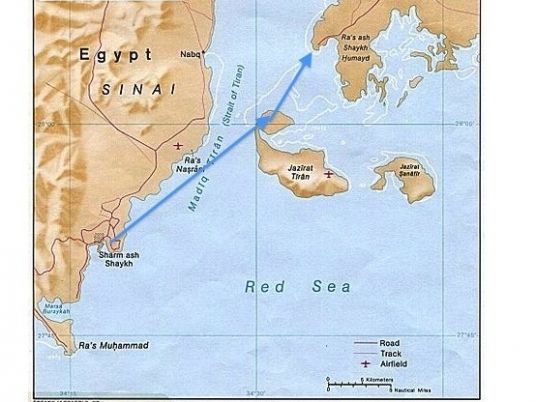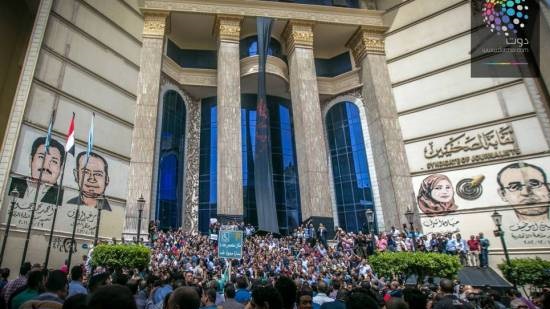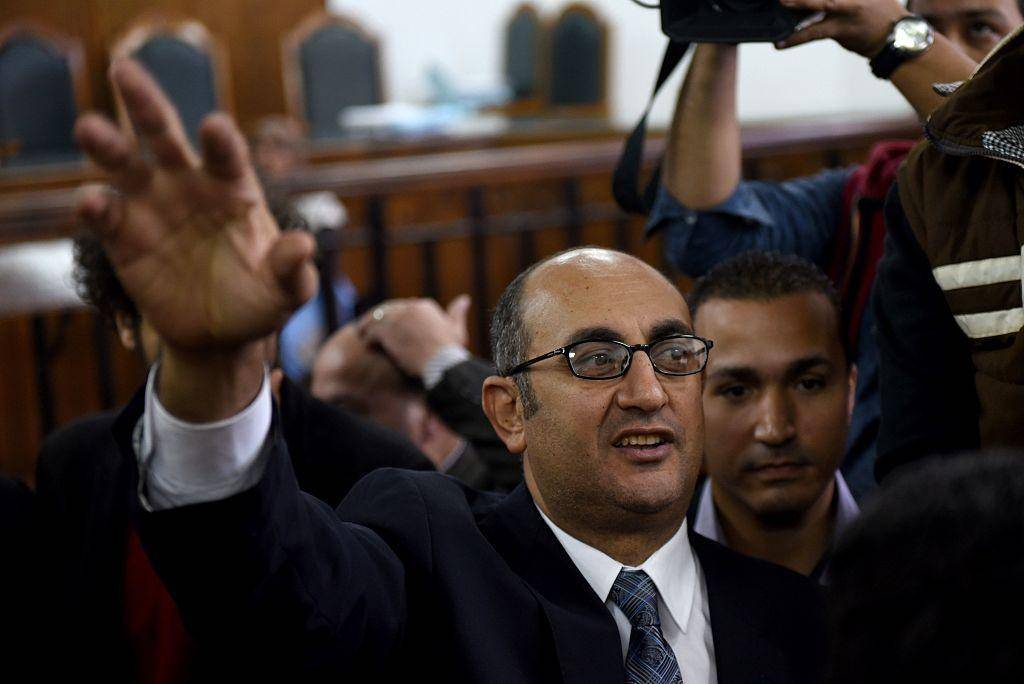
A judicial conflict is brewing inside the Court of Administrative Justice over the agreement to reassess the borders between Egypt and Saudi Arabia and transfer the islands of Tiran and Sanafeer to Saudi rule.
Human rights lawyer Khaled Ali impeached the agreement in front of the Council of State on Sunday. In an interview with Al-Masry Al-Youm, Ali indicated on Tuesday that the case against the agreement will be brought before the administrative court on May 17. He added that there is a large number of lawyers and civilians who have expressed an interest in assisting him with the case against the agreement. The necessary legal procedures are being undertaken to legitimize their involvement, in preparation for the court case.
Ali explained that resorting to legal action against the agreement symbolizes a resistance to the agreement and to the changing of Egypt’s borders.
On Saturday, the Egyptian government announced that the border lines are being revisited because the two islands lie in the Saudi part of the Red Sea, meaning that they are effectively in Saudi territory.
Judge Mohamed Hamed el Gamal, the former head of the Council of State, said that the government and the President’s decision to undertake this agreement is a matter of national sovereignty. Gamal said he expects it will be ruled that the islands agreement falls outside the bounds of administrative judiciary, adding that the general and administrative judiciaries in Egypt do not specialize in matters of national sovereignty.
Gamal said that any administrative decisions the government takes can be impeached in court, yet the judiciary has no authority to interfere with decisions concerning national sovereignty. There is an unresolved jurisprudential and legal disagreement over the judiciary’s authority to interfere in matters of sovereignty, he explained, but nonetheless, the judiciary has significant leverage in its authority to challenge decisions such as this.
For his part, Ali said that the constitution warns against the endorsement of any administrative decisions by the Administrative Control Authority.
Article 97 of the 2014 constitution dictates, “Litigation is a protected right that is available to all, and the state has a responsibility to resolve litigation conflicts should they occur. The constitution warns against the endorsement of such matters by the Administrative Control Authority. The settling of any case relies upon the jurisdiction under which the case falls and exceptional courts are forbidden.”
Ali added that it is the court that decides whether a case falls under its jurisdiction or not, and it will be their decision whether to interfere in matters of sovereignty or not.
Edited translation from Al-Masry Al-Youm




